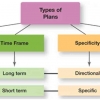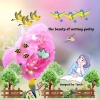Indonesia is an archipelagic country that has various races and ethnicities spread throughout its territory. The fact is that Indonesia has 718 mother tongues, five major religions, 1,340 ethnic groups, and 17,504 islands. Because of this, Indonesia is known as a multicultural country. This title may be called "pride" because it shows the characteristics of Indonesia itself, but behind that pride, many issues regarding multiculturalism are still the main issues that need to be straightened out. The issue is not far from inter-ethnic racism and the lack of tolerance for beliefs.
The term "multicultural" is often used as a descriptive term to characterize the fact of diversity in a society. (Song, S., 2010). In addition, according to The Harper Collins Dictionary of Sociology (1991), multiculturalism is the identification and development of diversity as a distinctive characteristic of certain people. In essence, multiculturalism itself is a view of cultural differences and recognizes these differences, starting with race, culture, upheld values, and mores.
The issue of multiculturalism in Indonesia is still a concern, and the need and importance of education about multiculturalism are still very important. The right education will have a good impact on the continuity of the peace of the Indonesian nation. Educating about multiculturalism should start from early childhood so that understanding is bound and will be carried over until they grow up. It can also start from elementary school where they are more ready to understand and understand this multiculturalism.
Multicultural education for early childhood is presented to provide alternative colour schemes for other solutions to build the character and character of the nation with efforts to form, familiarize, and instill behaviour of mutual respect, appreciation, and tolerance from as early as possible to all forms of differences that exist in their environment. (Hariyanto, 2011).
Multicultural education is an educational strategy that is applied to all types of subjects that accommodates the cultural differences that exist in students, such as differences in ethnicity, religion, language, gender, social class, ability, and age so that the learning process becomes effective and easy. It is also needed to build the character of students to be able to be democratic, humanist, and pluralist in their environment. (Yaqin, A., 2004).
Children aged 0--6 years old are at a golden age that is very effective in instilling, training, and familiarizing all aspects of value education, both positive and negative. Multicultural education is one of the concrete efforts of educational actors to instill basic values in children from an early age. (Kusuma, W. H., 2013). That is why it is critical to provide multicultural education to children in their early years. In addition, teaching them about respecting differences in race, religion, language, and culture is not only beneficial for social conditions and the sustainability of the country, but it is also important to shape their characteristics so that they become someone who has good and high quality. In addition, multicultural education can be an alternative solution to various forms of criminal behaviour for crimes against humanity based on differences in race, ethnicity, culture, and religion. Hopefully, our country, Indonesia, can be even better at dealing with and responding to the issue of multiculturalism, and hopefully multiculturalism education really exists and is implemented in the world of education so that in the future it will produce citizens of good quality and become an Indonesian state that is better.
References
Zarbaliyev, H. (2017). Multiculturalism in globalization era: History and challenge for Indonesia. Journal of Social Studies (JSS), 13(1), 1-16.
Song, S. (2010)
Hariyanto, NIM: 09.261.015 (2011) PENDIDIKAN MULTIKULTURAL PADA ANAK USIA DINI DI TK HARAPAN BANGSA CONDONGCATUR DEPOK SLEMAN YOGYAKARTA. Master's thesis, UIN Sunan Kalijaga Yogyakarta.
Yaqin, A. (2004). Pendidikan Multikultural: Cross-Cultural Understanding untuk Demokrasi. Pilara Media, Yogyakarta.
Kusuma, W. H. (2013). Urgensi pendidikan multikultural bagi anak usia dini. Al-Lughah: Jurnal Bahasa, 2(1).











